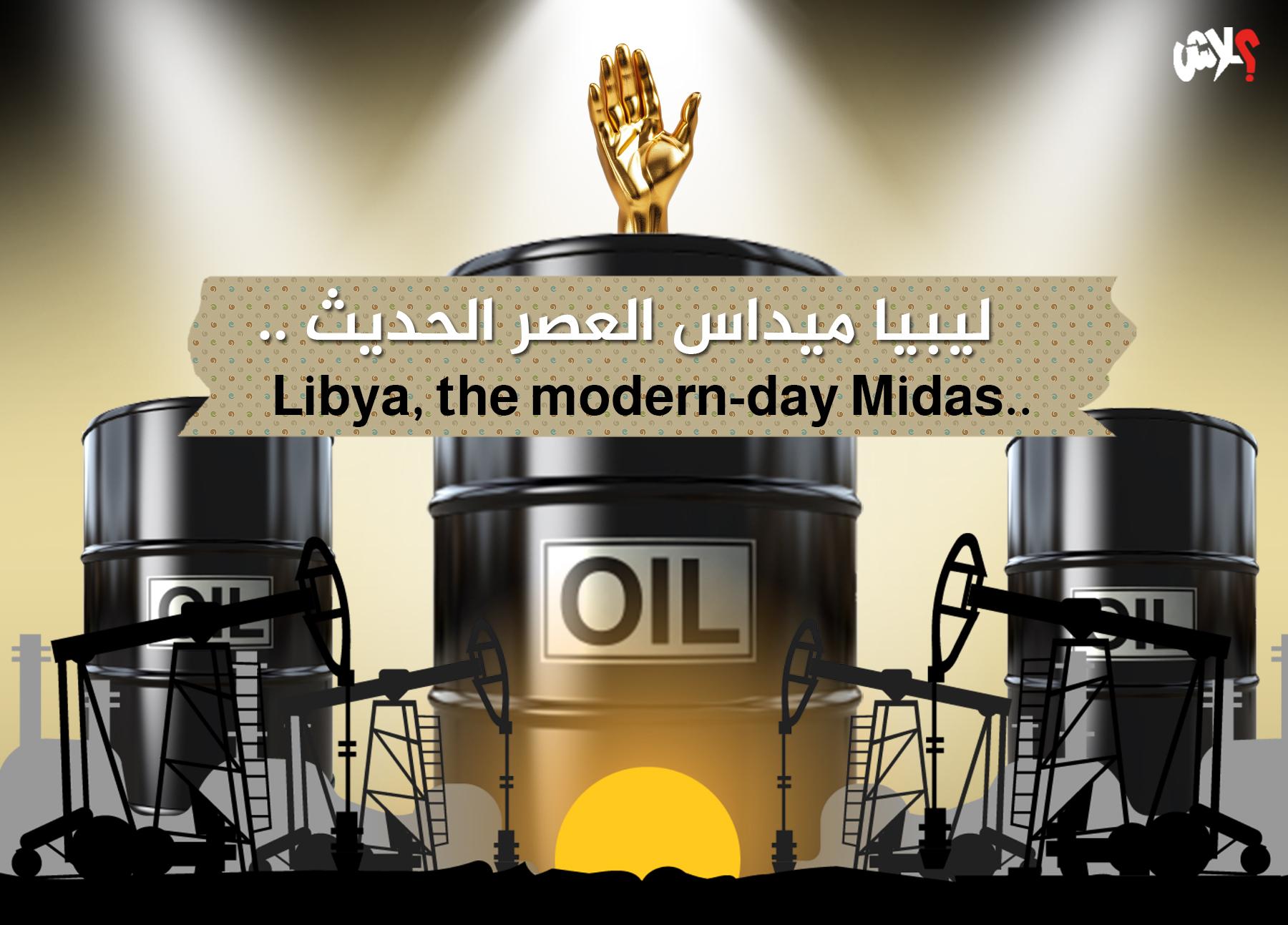Libya: The Modern-Day Midas
Greek mythology tells the story of King Midas, who was granted the power to turn everything he touched into gold. What seemed like a blessing soon became a curse fueled by greed and mismanagement. Midas turned stones into gold, then fruits, trees, food, and drink until he stood on the brink of starvation. Gold could end poverty, but not hunger.
To further warn against unchecked greed, the myth ends with a heart-wrenching twist: when his daughter embraced him to comfort his sorrow, she too turned into a golden statue. It was then that Midas, broken by loss, begged his gods to strip him of this deadly gift.
Today, Libya offers a haunting modern reflection of this ancient tale a country with immense oil wealth that has become a curse rather than a blessing. Rich in resources, Libya should be a land of prosperity. Instead, its “black gold” fuels endless conflict, squandering opportunities in the absence of vision, leadership, or wisdom.
Like Midas, Libya sits on treasure it cannot properly use. Its vast reserves of oil among the largest in Africa and the world have not translated into development. Instead, they have become tools of division. Despite the formal authority of the National Oil Corporation (NOC), control over oil is fractured held hostage by militias and rival governments. All factions in power today, east and west, are implicated in complex, often blatant, smuggling networks. And the NOC itself has been reduced, in some accounts, to the role of a facilitator for these thieves.
It began in 1955 when the American company Esso discovered the first oil well in the Libyan desert. By 1959, the massive Sarir Field was announced. By 1961, production had begun. Libya once a poor country dependent on foreign aid entered the oil age. By 1969, it was producing 3 million barrels per day. The wheels of development began turning, slowly but meaningfully.
Then came Gaddafi.
His coup in 1969 assassinated Libya’s hopes. Oil ceased to be a tool of development and became a weapon of politics fueling the rise of one man as “revolutionary leader,” “visionary,” and even “King of Kings.” Gaddafi used oil not to build schools or hospitals, but to fund rebel movements abroad, destabilize neighboring regimes, and glorify his anti-Western persona. Billions in oil revenues were spent on propaganda and geopolitical vanity projects while Libyans remained impoverished.
Despite decades of wealth, Libya remained underdeveloped. Poverty persisted, fueling the uprising that brought down Gaddafi in 2011. Yet, fourteen years later, the revolution has failed to deliver. Many Libyans revolutionaries among them now whisper bitterly: “How noble your stepmother was, Father!”
Yes, Gaddafi fell, but what followed was a free-for-all over his legacy. As Midas turned everything to gold and nearly starved, Libya’s oil turned many into millionaires but the greed that followed ensures their downfall. Unlike Midas, whose curse touched only his close circle, our curse will consume us all.
Fuel and oil smuggling has reached absurd levels. Some international reports estimate Libya loses $5 billion annually just from smuggling before even addressing state-sanctioned corruption. Take, for example, Arkno, a notoriously opaque oil firm run by Haftar’s sons, allegedly in cooperation with actors in western Libya. Verified international reports show Arkno selling oil shipments through official state ports with no trace of where the money goes or who benefits.
Under Gaddafi, oil funded fake revolutions while citizens lived in poverty under a crumbling infrastructure. Post-2011, oil finances warlords and flashy facades of “reconstruction,” while the average Libyan continues to suffer from poverty, ignorance, and disease.
Like then, Libya’s oil remains a tool of war, not peace. The state has failed to harness this wealth for national progress. Oilfields have become tombstones for our dreams markers of what might have been. Libya today is like a rich man dying of hunger beside his treasure, just as Midas starved with gold in his hands but no food to eat.
Midas wept for his daughter. We will weep for our country.

